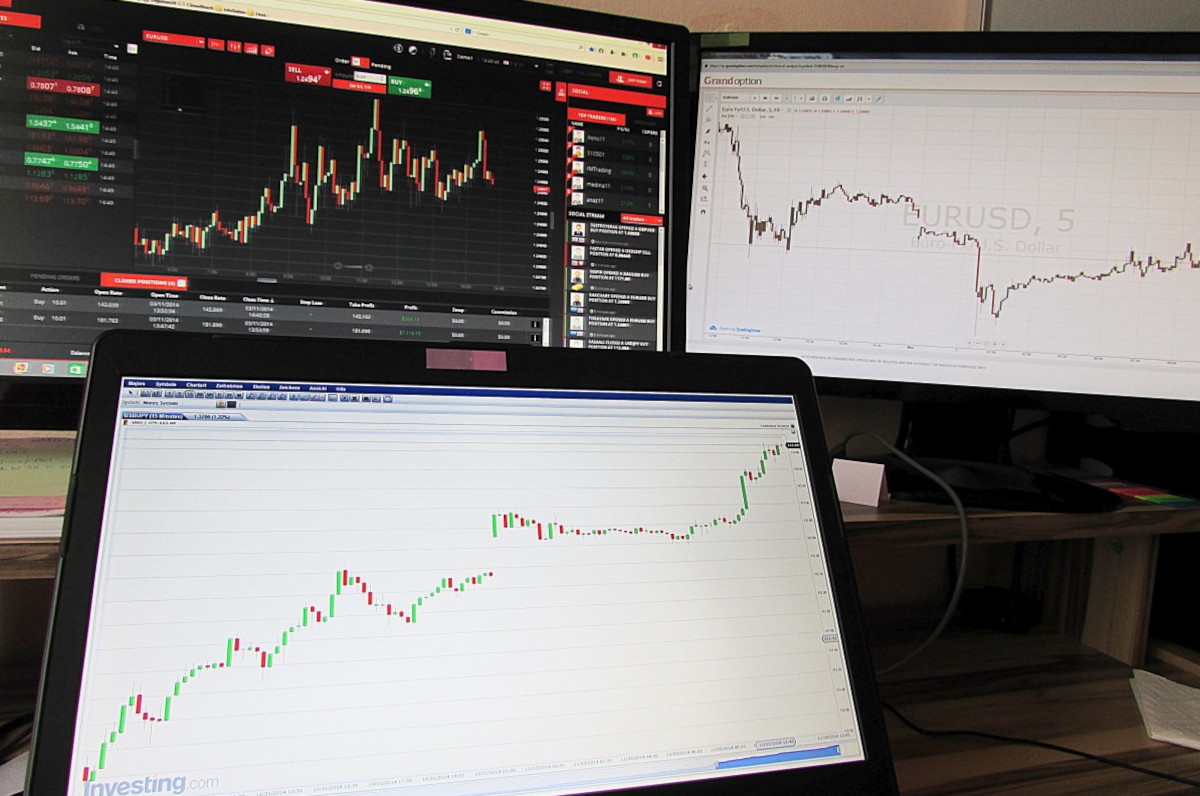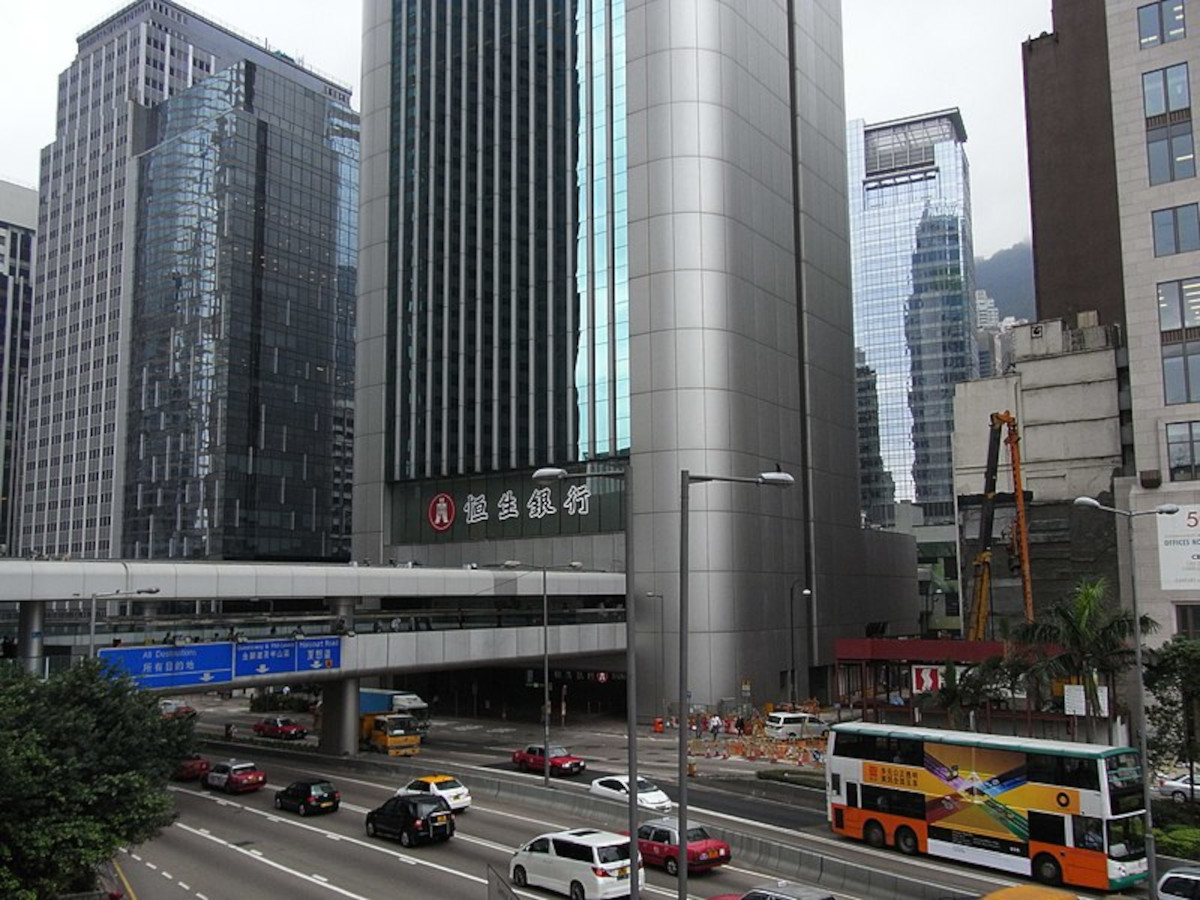(VIANEWS) – Eaton Vance Floating Rate Income Trust (EFT), BlackRock Income Trust (BKT), Pfizer (PFE) have the highest dividend yield stocks on this list.
| Financial Asset | Forward Dividend Yield | Updated (EST) |
|---|---|---|
| Eaton Vance Floating Rate Income Trust (EFT) | 10.61% | 2024-04-22 03:23:05 |
| BlackRock Income Trust (BKT) | 9.31% | 2024-04-21 07:12:05 |
| Pfizer (PFE) | 6.61% | 2024-04-28 03:19:10 |
| Valley National Bancorp (VLY) | 5.71% | 2024-04-20 09:10:05 |
| Nuveen Arizona Premium Income Municipal Fund (NAZ) | 4.79% | 2024-04-24 03:13:05 |
| Pinnacle West Capital Corporation (PNW) | 4.72% | 2024-04-24 19:07:06 |
| Greif (GEF) | 3.39% | 2024-04-22 17:06:05 |
| Berkshire Hills Bancorp (BHLB) | 3.32% | 2024-04-21 06:23:05 |
| Colgate-Palmolive (CL) | 2.39% | 2024-04-28 03:21:54 |
| JP Morgan Chase (JPM) | 2.38% | 2024-04-28 03:17:51 |
A little less 2K companies listed in the Nasdaq and NYSE pay out dividends to its shareholders. The dividend yield is a dividend to price ratio showing how much a company pays out in dividends each year.
1. Eaton Vance Floating Rate Income Trust (EFT) – Dividend Yield: 10.61%
Eaton Vance Floating Rate Income Trust’s last close was $13.35, 1.11% below its 52-week high of $13.50. Intraday change was -0.37%.
Eaton Vance Floating-Rate Income Trust is a closed-ended fixed income mutual fund launched and managed by Eaton Vance Management. The fund invests in fixed income markets of the United States. It invests in fixed income securities operating across diversified sectors. The fund primarily invests in senior, secured floating rate loans. It benchmarks the performance of its portfolio against the S&P/LSTA Leveraged Loan Index. Eaton Vance Floating-Rate Income Trust was formed on June 29, 2004 and is domiciled in the United States.
Earnings Per Share
As for profitability, Eaton Vance Floating Rate Income Trust has a trailing twelve months EPS of $1.72.
PE Ratio
Eaton Vance Floating Rate Income Trust has a trailing twelve months price to earnings ratio of 7.76. Meaning, the purchaser of the share is investing $7.76 for every dollar of annual earnings.
The company’s return on equity, which measures the profitability of a business relative to shareholder’s equity, for the twelve trailing months is 13.87%.
Revenue Growth
Year-on-year quarterly revenue growth grew by 33.4%, now sitting on 56.67M for the twelve trailing months.
More news about Eaton Vance Floating Rate Income Trust.
2. BlackRock Income Trust (BKT) – Dividend Yield: 9.31%
BlackRock Income Trust’s last close was $11.37, 10.75% under its 52-week high of $12.74. Intraday change was 0.26%.
BlackRock Income Trust, Inc. is a closed ended fixed income mutual fund launched by BlackRock, Inc. The fund is managed by BlackRock Advisors, LLC. It invests in the fixed income markets of the United States. The fund invests in securities of companies that operate across diversified sectors. It invests in securities such as U.S. government sponsored agency securities, non-agency mortgage-backed securities, asset-backed securities, and U.S. treasury obligations. The fund invests its assets in securities that are issued or guaranteed by the US government or one of its agencies or instrumentalities or rated at the time of investment either AAA by S&P or Aaa by Moody's. BlackRock Income Trust, Inc. was formed on July 22, 1988 and is domiciled in the United States.
Earnings Per Share
As for profitability, BlackRock Income Trust has a trailing twelve months EPS of $0.69.
PE Ratio
BlackRock Income Trust has a trailing twelve months price to earnings ratio of 16.48. Meaning, the purchaser of the share is investing $16.48 for every dollar of annual earnings.
The company’s return on equity, which measures the profitability of a business relative to shareholder’s equity, for the twelve trailing months is 5.38%.
Volume
Today’s last reported volume for BlackRock Income Trust is 32985 which is 48.55% below its average volume of 64114.
More news about BlackRock Income Trust.
3. Pfizer (PFE) – Dividend Yield: 6.61%
Pfizer’s last close was $25.26, 37.43% below its 52-week high of $40.37. Intraday change was -1.82%.
Pfizer Inc. discovers, develops, manufactures, markets, distributes, and sells biopharmaceutical products in the United States, Europe, and internationally. The company offers medicines and vaccines in various therapeutic areas, including cardiovascular metabolic, migraine, and women's health under the Eliquis, Nurtec ODT/Vydura, Zavzpret, and the Premarin family brands; infectious diseases with unmet medical needs under the Prevnar family, Abrysvo, Nimenrix, FSME/IMMUN-TicoVac, and Trumenba brands; and COVID-19 prevention and treatment, and potential future mRNA and antiviral products under the Comirnaty and Paxlovid brands. It also provides medicines and vaccines in various therapeutic areas, such as biosimilars for chronic immune and inflammatory diseases under the Xeljanz, Enbrel, Inflectra, Litfulo, Velsipity, and Cibinqo brands; amyloidosis, hemophilia, endocrine diseases, and sickle cell disease under the Vyndaqel family, Oxbryta, BeneFIX, Somavert, Ngenla, and Genotropin brands; sterile injectable and anti-infective medicines under the Sulperazon, Medrol, Zavicefta, Zithromax, and Panzyga brands; and biologics, small molecules, immunotherapies, and biosimilars under the Ibrance, Xtandi, Inlyta, Bosulif, Mektovi, Padcev, Adcetris, Talzenna, Tukysa, Elrexfio, Tivdak, Lorbrena, and Braftovi brands. In addition, the company involved in the contract manufacturing business. It serves wholesalers, retailers, hospitals, clinics, government agencies, pharmacies, individual provider offices, retail pharmacies, and integrated delivery systems. The company has collaboration agreements with Bristol-Myers Squibb Company; Astellas Pharma US, Inc.; Merck KGaA; and BioNTech SE. Pfizer Inc. was founded in 1849 and is headquartered in New York, New York.
Earnings Per Share
As for profitability, Pfizer has a trailing twelve months EPS of $0.37.
PE Ratio
Pfizer has a trailing twelve months price to earnings ratio of 69.89. Meaning, the purchaser of the share is investing $69.89 for every dollar of annual earnings.
The company’s return on equity, which measures the profitability of a business relative to shareholder’s equity, for the twelve trailing months is 2.35%.
Yearly Top and Bottom Value
Pfizer’s stock is valued at $25.86 at 10:15 EST, way under its 52-week high of $40.37 and higher than its 52-week low of $25.20.
Volatility
Pfizer’s last week, last month’s, and last quarter’s current intraday variation average was a positive 0.35%, a negative 0.27%, and a positive 1.02%.
Pfizer’s highest amplitude of average volatility was 0.47% (last week), 0.78% (last month), and 1.02% (last quarter).
Volume
Today’s last reported volume for Pfizer is 41781000 which is 3.1% below its average volume of 43121200.
Moving Average
Pfizer’s value is below its 50-day moving average of $26.96 and way under its 200-day moving average of $30.49.
Previous days news about Pfizer
- Gear up for Pfizer (pfe) Q1 earnings: wall street estimates for key metrics. According to Zacks on Friday, 26 April, "Analysts predict that the ‘Revenues- Pfizer CentreOne- Total International’ will reach $192.35 million. ", "View all Key Company Metrics for Pfizer here>>>Shares of Pfizer have demonstrated returns of -9% over the past month compared to the Zacks S&P 500 composite’s -3.2% change. "
More news about Pfizer.
4. Valley National Bancorp (VLY) – Dividend Yield: 5.71%
Valley National Bancorp’s last close was $7.71, 31.28% below its 52-week high of $11.22. Intraday change was 5.47%.
Valley National Bancorp operates as the holding company for the Valley National Bank that provides commercial, retail, insurance, and wealth management financial services. The company operates through Commercial Lending, Consumer Lending, and Investment Management segments. Its deposit products include non-interest bearing, savings, NOW, and money market accounts, as well as certificates of deposit. The company offers various loan products comprising residential mortgage loans, automobile loans, secured personal lines of credit, and home equity loans; and floating rate and adjustable rate commercial and industrial loans, as well as fixed rate owner occupied and commercial real estate loans. It also invests in securities and interest-bearing deposits with other banks; and offers international banking services, such as standby letters of credit, documentary letters of credit and related products, and other ancillary services, such as foreign exchange transactions, documentary collections, foreign wire transfers, and transaction accounts for non-resident aliens. In addition, the company provides asset management advisory, trust, and asset-based lending support services; property and casualty, life, health, and title insurance agency services; and health care equipment lending and other commercial equipment leasing services, as well as real estate related investments. Further, it offers other banking services comprising automated teller machine, telephone and Internet banking, remote deposit capturing, overdraft, drive-in and night deposit, and safe deposit services. The company operates 238 branches in New Jersey, New York, Florida, and Alabama. Valley National Bancorp was founded in 1927 and is based in New York, New York.
Earnings Per Share
As for profitability, Valley National Bancorp has a trailing twelve months EPS of $0.95.
PE Ratio
Valley National Bancorp has a trailing twelve months price to earnings ratio of 8.12. Meaning, the purchaser of the share is investing $8.12 for every dollar of annual earnings.
The company’s return on equity, which measures the profitability of a business relative to shareholder’s equity, for the twelve trailing months is 7.61%.
Dividend Yield
According to Morningstar, Inc., the next dividend payment is on Mar 13, 2024, the estimated forward annual dividend rate is 0.44 and the estimated forward annual dividend yield is 5.71%.
Yearly Top and Bottom Value
Valley National Bancorp’s stock is valued at $7.71 at 10:15 EST, way under its 52-week high of $11.22 and way higher than its 52-week low of $6.39.
Volume
Today’s last reported volume for Valley National Bancorp is 8523610 which is 24.53% above its average volume of 6844350.
Growth Estimates Quarters
The company’s growth estimates for the current quarter and the next is a negative 33.3% and a negative 21.4%, respectively.
More news about Valley National Bancorp.
5. Nuveen Arizona Premium Income Municipal Fund (NAZ) – Dividend Yield: 4.79%
Nuveen Arizona Premium Income Municipal Fund’s last close was $10.64, 3.88% under its 52-week high of $11.07. Intraday change was 0.19%.
Nuveen Arizona Quality Municipal Income Fund is a closed ended fixed income mutual fund launched by Nuveen Investments, Inc. The fund is managed by Nuveen Asset Management, LLC. It invests in the fixed income markets of Arizona. The fund invests in municipal securities and other related investments the income, exempt from regular federal and Arizona income taxes that are rated Baa or BBB or better and having an average maturity of 18.66 years. It employs fundamental analysis with bottom-up stock picking approach to create its portfolio. The fund benchmarks the performance of its portfolio against the Standard & Poor's (S&P) Arizona Municipal Bond Index and Standard & Poor's (S&P) National Municipal Bond Index. The fund was formerly known as Nuveen Arizona Premium Income Municipal Fund. Nuveen Arizona Quality Municipal Income Fund was formed on November 19, 1992 and is domiciled in the United States.
Earnings Per Share
As for profitability, Nuveen Arizona Premium Income Municipal Fund has a trailing twelve months EPS of $-0.13.
The company’s return on equity, which measures the profitability of a business relative to shareholder’s equity, for the twelve trailing months is negative -14.88%.
Volume
Today’s last reported volume for Nuveen Arizona Premium Income Municipal Fund is 22040 which is 43.87% above its average volume of 15319.
More news about Nuveen Arizona Premium Income Municipal Fund.
6. Pinnacle West Capital Corporation (PNW) – Dividend Yield: 4.72%
Pinnacle West Capital Corporation’s last close was $74.54, 13.36% below its 52-week high of $86.03. Intraday change was 0.05%.
Pinnacle West Capital Corporation, through its subsidiary, Arizona Public Service Company, provides retail and wholesale electric services primarily in the state of Arizona. The company engages in the generation, transmission, and distribution of electricity using coal, nuclear, gas, oil, and solar generating facilities. Its transmission facilities include overhead lines and underground lines; and distribution facilities, as well as owns and maintains transmission and distribution substations. The company was incorporated in 1985 and is headquartered in Phoenix, Arizona.
Earnings Per Share
As for profitability, Pinnacle West Capital Corporation has a trailing twelve months EPS of $4.41.
PE Ratio
Pinnacle West Capital Corporation has a trailing twelve months price to earnings ratio of 16.9. Meaning, the purchaser of the share is investing $16.9 for every dollar of annual earnings.
The company’s return on equity, which measures the profitability of a business relative to shareholder’s equity, for the twelve trailing months is 8.34%.
Dividend Yield
As stated by Morningstar, Inc., the next dividend payment is on Apr 30, 2024, the estimated forward annual dividend rate is 3.52 and the estimated forward annual dividend yield is 4.72%.
More news about Pinnacle West Capital Corporation.
7. Greif (GEF) – Dividend Yield: 3.39%
Greif’s last close was $61.36, 19.26% under its 52-week high of $76.00. Intraday change was 0.78%.
Greif, Inc. engages in the production and sale of industrial packaging products and services worldwide. It operates through three segments: Global Industrial Packaging; Paper Packaging & Services; and Land Management. The Global Industrial Packaging segment produces and sells industrial packaging products, including steel, fiber, and plastic drums; rigid and flexible intermediate bulk containers; closure systems for industrial packaging products; transit protection products; water bottles, and remanufactured and reconditioned industrial containers; and various services, such as container life cycle management, filling, logistics, warehousing, and other packaging services to chemicals, paints and pigments, food and beverage, petroleum, industrial coatings, agriculture, pharmaceuticals, mineral product, and other industries. This segment also offers flexible intermediate bulk containers and related services. The Paper Packaging & Services segment produces and sells containerboards, corrugated sheets and containers, and other corrugated and specialty products to customers in the packaging, automotive, food, and building products markets; and produces and sells coated and uncoated recycled paperboard, and recycled fiber. This segment's corrugated container products are used to ship various products, such as home appliances, small machinery, grocery products, automotive components, books, and furniture, as well as various other applications. The Land Management segment engages in harvesting and regeneration of timber properties; and sale of timberland and special use properties. As of October 31, 2022, this segment owned approximately 175,000 acres of timber properties in the southeastern United States. The company was formerly known as Greif Bros. Corporation and changed its name to Greif, Inc. in 2001. Greif, Inc. was founded in 1877 and is headquartered in Delaware, Ohio.
Earnings Per Share
As for profitability, Greif has a trailing twelve months EPS of $5.78.
PE Ratio
Greif has a trailing twelve months price to earnings ratio of 10.7. Meaning, the purchaser of the share is investing $10.7 for every dollar of annual earnings.
The company’s return on equity, which measures the profitability of a business relative to shareholder’s equity, for the twelve trailing months is 17.75%.
Yearly Top and Bottom Value
Greif’s stock is valued at $61.84 at 10:15 EST, way below its 52-week high of $76.00 and above its 52-week low of $59.37.
Dividend Yield
As stated by Morningstar, Inc., the next dividend payment is on Mar 15, 2024, the estimated forward annual dividend rate is 2.08 and the estimated forward annual dividend yield is 3.39%.
More news about Greif.
8. Berkshire Hills Bancorp (BHLB) – Dividend Yield: 3.32%
Berkshire Hills Bancorp’s last close was $21.71, 15.82% below its 52-week high of $25.79. Intraday change was 3.48%.
Berkshire Hills Bancorp, Inc. operates as a bank holding company for Berkshire Bank that provides various banking products and services. It offers various deposit accounts, including demand deposit, NOW, regular savings, money market savings, time certificates of deposit, and retirement deposit accounts; and loans, such as commercial real estate, commercial and industrial, consumer, and residential mortgage loans. The company also provides wealth management services comprising investment management, trust administration, and financial planning; and investment products, financial planning, and brokerage services. In addition, it offers electronic banking, commercial cash management, online banking, and mobile banking services; and debit cards and other electronic fee producing payment services to transaction account customers. Further, the company, through its subsidiary, Berkshire Insurance Group, Inc., provides personal and commercial property, and casualty insurance; employee benefits insurance; and life, health, and financial services insurance products. It serves personal, commercial, not- profit, and municipal deposit customers. As of December 31, 2020, the company operated 130 full-service branches in Massachusetts, New York, Connecticut, Vermont, Central New Jersey, and Eastern Pennsylvania. Berkshire Hills Bancorp, Inc. was founded in 1846 and is headquartered in Boston, Massachusetts.
Earnings Per Share
As for profitability, Berkshire Hills Bancorp has a trailing twelve months EPS of $1.6.
PE Ratio
Berkshire Hills Bancorp has a trailing twelve months price to earnings ratio of 13.57. Meaning, the purchaser of the share is investing $13.57 for every dollar of annual earnings.
The company’s return on equity, which measures the profitability of a business relative to shareholder’s equity, for the twelve trailing months is 2.17%.
Dividend Yield
As claimed by Morningstar, Inc., the next dividend payment is on Mar 20, 2024, the estimated forward annual dividend rate is 0.72 and the estimated forward annual dividend yield is 3.32%.
Yearly Top and Bottom Value
Berkshire Hills Bancorp’s stock is valued at $21.71 at 10:15 EST, way below its 52-week high of $25.79 and way higher than its 52-week low of $18.07.
Growth Estimates Quarters
The company’s growth estimates for the ongoing quarter is a negative 7.3% and positive 17.8% for the next.
More news about Berkshire Hills Bancorp.
9. Colgate-Palmolive (CL) – Dividend Yield: 2.39%
Colgate-Palmolive’s last close was $89.29, 8.77% higher than its 52-week high of $82.09. Intraday change was -0.22%.
Colgate-Palmolive Company, together with its subsidiaries, manufactures and sells consumer products in the United States and internationally. It operates through two segments: Oral, Personal and Home Care; and Pet Nutrition. The Oral, Personal and Home Care segment offers toothpaste, toothbrushes, mouthwash, bar and liquid hand soaps, shower gels, shampoos, conditioners, deodorants and antiperspirants, skin health products, dishwashing detergents, fabric conditioners, household cleaners, and other related items. This segment markets and sells its products under various brands, which include Colgate, Darlie, elmex, hello, meridol, Sorriso, Tom's of Maine, Irish Spring, Palmolive, Protex, Sanex, Softsoap, Lady Speed Stick, Speed Stick, EltaMD, Filorga, PCA SKIN, Ajax, Axion, Fabuloso, Murphy, Suavitel, and Soupline to a range of traditional and eCommerce retailers, wholesalers, and distributors. It includes pharmaceutical products for dentists and other oral health professionals. Its Pet Nutrition segment offers pet nutrition products for everyday nutritional needs under the Hill's Science Diet brand; and a range of therapeutic pet products to help nutritionally support dogs and cats in different stages of health under the Hill's Prescription Diet brand. This segment markets and sells its products through pet supply retailers, veterinarians, and eCommerce retailers. Colgate-Palmolive Company was founded in 1806 and is headquartered in New York, New York.
Earnings Per Share
As for profitability, Colgate-Palmolive has a trailing twelve months EPS of $2.77.
PE Ratio
Colgate-Palmolive has a trailing twelve months price to earnings ratio of 30.98. Meaning, the purchaser of the share is investing $30.98 for every dollar of annual earnings.
The company’s return on equity, which measures the profitability of a business relative to shareholder’s equity, for the twelve trailing months is 238.24%.
Yearly Top and Bottom Value
Colgate-Palmolive’s stock is valued at $85.82 at 10:15 EST, higher than its 52-week high of $82.09.
Stock Price Classification
According to the stochastic oscillator, a useful indicator of overbought and oversold conditions, Colgate-Palmolive’s stock is considered to be oversold (<=20).
Previous days news about Colgate-Palmolive
- Colgate-palmolive (cl) Q1 earnings: taking a look at key metrics versus estimates. According to Zacks on Friday, 26 April, "For the quarter ended March 2024, Colgate-Palmolive (CL Quick QuoteCL – Free Report) reported revenue of $5.07 billion, up 6.2% over the same period last year. ", "Here is how Colgate-Palmolive performed in the just reported quarter in terms of the metrics most widely monitored and projected by Wall Street analysts:"
More news about Colgate-Palmolive.
10. JP Morgan Chase (JPM) – Dividend Yield: 2.38%
JP Morgan Chase’s last close was $193.37, 3.77% under its 52-week high of $200.94. Intraday change was -6.47%.
JPMorgan Chase & Co. operates as a financial services company worldwide. It operates through four segments: Consumer & Community Banking (CCB), Corporate & Investment Bank (CIB), Commercial Banking (CB), and Asset & Wealth Management (AWM). The CCB segment offers deposit, investment and lending products, cash management, and payments and services; mortgage origination and servicing activities; residential mortgages and home equity loans; and credit cards, auto loans, leases, and travel services to consumers and small businesses through bank branches, ATMs, and digital and telephone banking. The CIB segment provides investment banking products and services, including corporate strategy and structure advisory, and equity and debt market capital-raising services, as well as loan origination and syndication; payments; and cash and derivative instruments, risk management solutions, prime brokerage, and research. This segment also offers securities services, including custody, fund accounting and administration, and securities lending products for asset managers, insurance companies, and public and private investment funds. The CB segment provides financial solutions, including lending, payments, investment banking, and asset management to small and midsized companies, local governments, nonprofit clients, and large corporations, as well as investors, developers, and owners of multifamily, office, retail, industrial, and affordable housing properties. The AWM segment offers multi-asset investment management solutions in equities, fixed income, alternatives, and money market funds to institutional clients and retail investors; and retirement products and services, brokerage, custody, estate planning, lending, deposits, and investment management products to high net worth clients. JPMorgan Chase & Co. was founded in 1799 and is headquartered in New York, New York.
Earnings Per Share
As for profitability, JP Morgan Chase has a trailing twelve months EPS of $16.22.
PE Ratio
JP Morgan Chase has a trailing twelve months price to earnings ratio of 11.27. Meaning, the purchaser of the share is investing $11.27 for every dollar of annual earnings.
The company’s return on equity, which measures the profitability of a business relative to shareholder’s equity, for the twelve trailing months is 15.74%.
More news about JP Morgan Chase.











